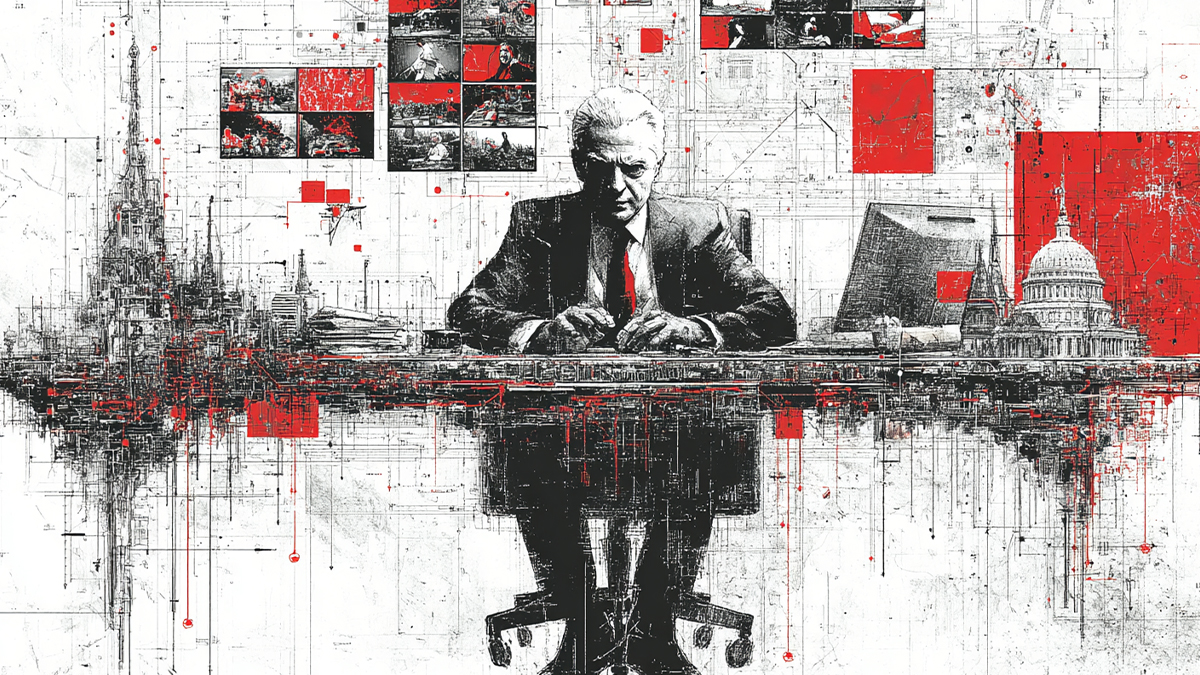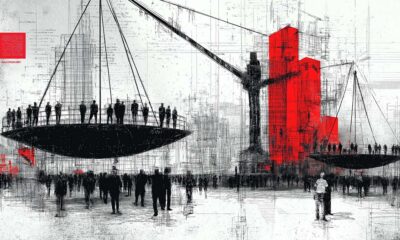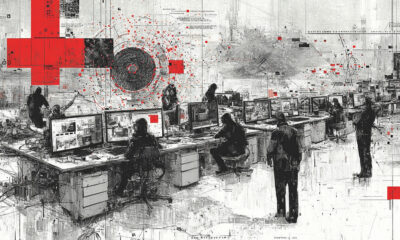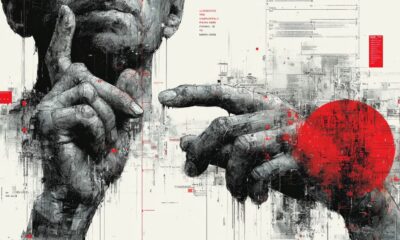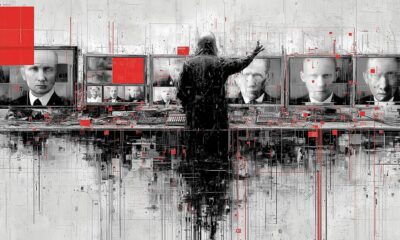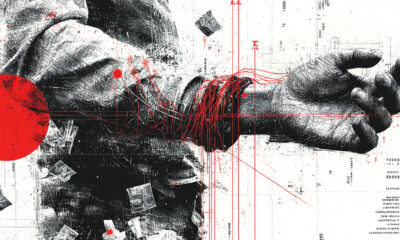Bulgaria
Bulgaria’s EU Democratic Transition: Anti-Corruption Mission Failed Successfully
Bulgaria celebrated its future entry into the eurozone this month, beneath the celebratory facade, opposition leaders face arrest and the judicial system continues its steady collapse. This erosion of democratic norms threatens to poison the European Union from within, transforming what should be Bulgaria’s crowning European achievement into an empty symbolic gesture. As Brussels bureaucrats applauded Bulgaria’s deeper integration into European structures, the stark reality reveals a country where corruption-fighting agencies have become corruption’s most effective servants, where media moguls worth billions operate as modern-day feudal lords, and where democratic institutions have been perverted into weapons against the very democracy they were designed to safeguard.
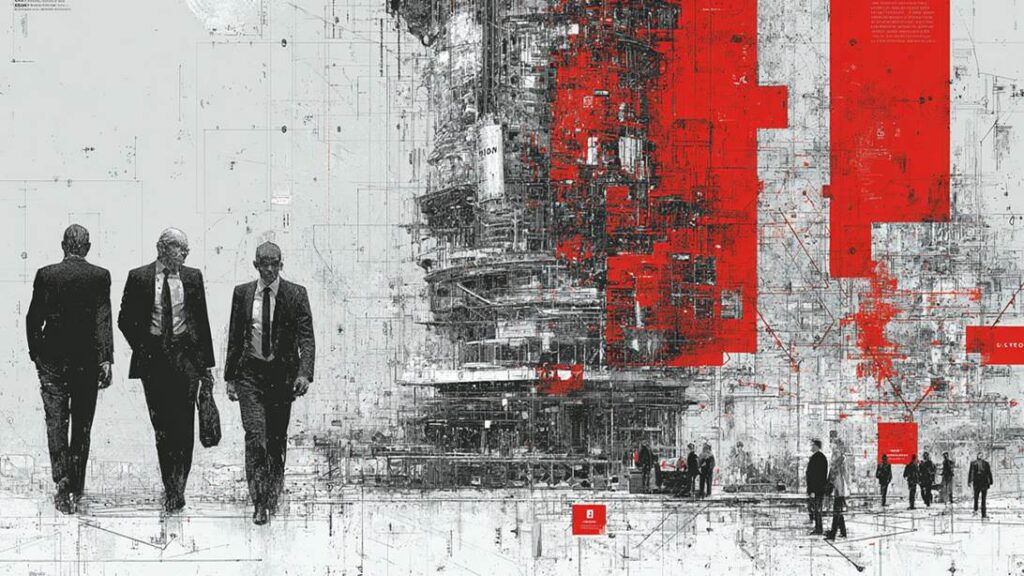
When Democracy Meets Its Match: The Peevski Empire’s Hostile Takeover
In the annals of European oligarchy, few figures command the peculiar mixture of fear, disgust, and grudging admiration that Delyan Peevski inspires. Bulgaria’s most powerful oligarch has achieved what many thought impossible in a European Union member state: the complete capture of democratic institutions while maintaining the facade of legitimacy. Sanctioned by both the United States and United Kingdom for corruption, influence peddling, and bribery, Peevski continues to operate with impunity in Bulgaria, where only 2% of citizens trust him while 88% actively distrust him. Yet this toxic reputation has not prevented him from wielding unprecedented influence over the country’s political and media landscape.
Peevski’s empire extends far beyond traditional political influence. Through his control of nearly 80% of Bulgaria’s print media distribution network, he has created what Reporters Without Borders described in 2018 as the embodiment of “corruption and collusion between media, politicians, and oligarchs”. His media conglomerate serves as both shield and sword—protecting him from scrutiny while attacking his enemies with surgical precision. The Bulgarian National Radio has documented how this media control allows Peevski to shape public discourse, manipulate electoral outcomes, and silence investigative journalism.
The scope of Peevski’s political influence became clear in 2024 when he assumed leadership of the Movement for Rights and Freedoms (DPS), traditionally representing Bulgaria’s ethnic Turkish minority. Under his leadership, the party achieved second place in parliamentary elections, winning 47 out of 240 seats despite his toxic public image. This electoral success occurred not through popular appeal—polls consistently show him as one of Bulgaria’s most distrusted politicians—but through what observers describe as a sophisticated vote-buying operation.
International sanctions have done little to curb Peevski’s activities. The United States imposed Magnitsky Act sanctions in 2021, accusing him of corruption and influence peddling designed “to protect himself from public scrutiny and exert control over key institutions and sectors”. The United Kingdom followed suit, citing his involvement in “attempts to exert control over key institutions and sectors in Bulgarian society through bribery and use of his media empire”. Yet Bulgarian authorities have taken no similar action, highlighting the fundamental disconnect between international recognition of Peevski’s corruption and domestic impunity.
Perhaps most revealing is Peevski’s appointment in 2013 as head of Bulgaria’s State Agency for National Security, a position for which he had “no credentials”. The appointment, which “reeked of nepotism and the misuse of state institutions for personal or political gain,” sparked nationwide protests that lasted for months. Yet Peevski not only survived the controversy but emerged stronger, demonstrating the resilience of Bulgaria’s corrupt networks against public pressure.
The oligarch’s influence extends into the highest levels of government through what insiders describe as a system of financial leverage over politicians. Internal documents obtained by investigative journalists reveal that Peevski’s companies have provided “six-digit loans to politicians,” creating a web of financial dependency that ensures loyalty. This system of controlled indebtedness, combined with his media empire’s ability to destroy reputations, has made Peevski virtually untouchable within Bulgaria’s political system.
Even more disturbing are reports that Peevski receives advance warning of law enforcement operations. According to testimony from former associates, he had prior knowledge of European Public Prosecutor’s Office raids in 2023 and even received copies of witness testimonies during subsequent interrogations. As one former insider revealed, “Those colleagues of mine who were interrogated, then Kovachki had given them their own testimonies to read. The words of all those who were investigated had reached him, even when the investigators were only from the European Public Prosecutor’s Office“. This level of penetration into supposedly independent investigative bodies suggests corruption that reaches the very heart of Bulgaria’s justice system.
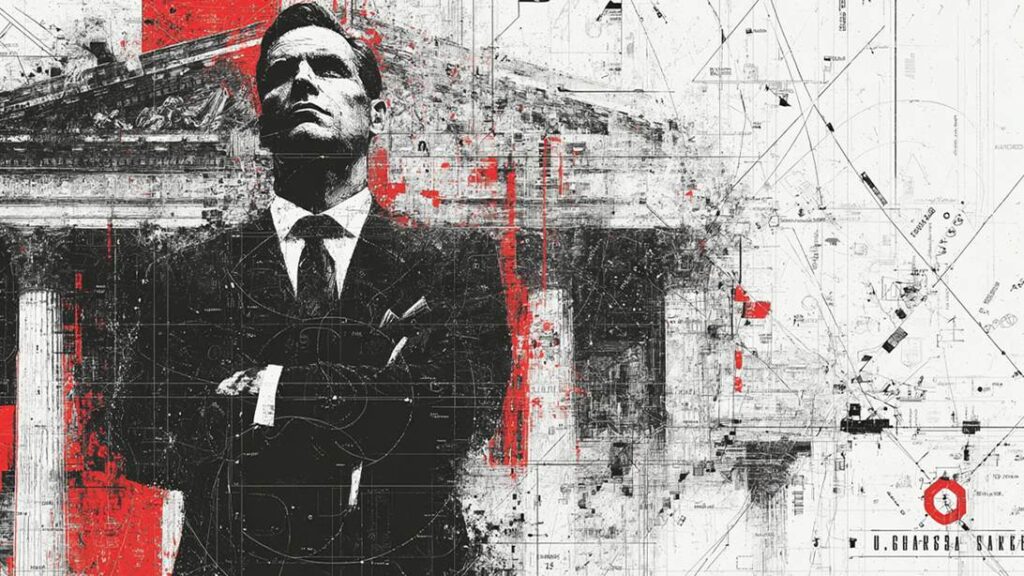
The Invisible Billionaire’s Guide to Energy Empires
While Peevski’s corruption operates in the harsh glare of international sanctions and media attention, Bulgaria’s energy sector harbors an even more sophisticated criminal enterprise. In June 2025, Bulgaria’s Anti-Corruption Fund revealed the existence of a massive secret energy cartel comprising over 150 companies with an annual turnover exceeding €2.6 billion—all controlled by businessman Hristo Kovachki, who for years had denied owning any of them.
The revelation of what insiders call the “Orion” holding company represents perhaps the most sophisticated example of organized crime masquerading as legitimate business in modern European history. Internal documents obtained by investigators show that Kovachki directly controls eleven power and heating plants, several mines, numerous companies trading in gas, electricity, carbon emissions, and biomass, as well as pension and insurance funds, transport and repair companies. Key assets include the Brikel and Bobov Dol coal-fired power plants, which Kovachki had repeatedly claimed he merely consulted for.
The organizational structure of this criminal enterprise reads like a masterclass in corporate obfuscation. All decisions, from strategic transactions to routine costs for consumables in individual companies, are personally approved by Kovachki, despite the companies being formally managed by different individuals with no apparent connections to each other.
Perhaps most bizarrely, the entire operation is coordinated through cartoon character stamps that serve as Kovachki’s de facto personal signature. As whistleblower Veselin Todorov revealed, “If you see a stamp, it’s God’s law”. These stamps are changed periodically, with their replacement approved by “order of the chief”—Kovachki’s required title in all written documents. All orders emanate from a single email address: [email protected], with “chichko trevichko” meaning “grass head” in Bulgarian.
The criminal activities of this cartel extend far beyond simple tax evasion. Internal documents reveal coordinated price manipulation on Bulgaria’s free electricity market, with companies siphoning profits through fake transactions with so-called “buffer companies” also owned by Kovachki. For 2023 alone, the holding concealed over BGN 900 million (approximately €460 million) in undistributed profits while failing to pay hundreds of millions in social security contributions and taxes.
Todorov’s testimony provides chilling insights into the intimidation tactics used to maintain this criminal enterprise. When he attempted to leave the holding, Kovachki “asked me to sign a promissory note to guarantee my silence. When I did not, he sent people to wait for me at home”. After Todorov’s departure, Kovachki initiated lawsuits that resulted in the seizure of BGN 350,000 from Todorov’s accounts. This pattern of financial coercion extends throughout the organization, with formal managers required to sign promissory notes worth millions to the companies they supposedly manage.
The case illustrates how organized crime has evolved in EU member states, moving beyond traditional activities to capture entire economic sectors through sophisticated corporate structures that exploit regulatory gaps between national jurisdictions. The Kovachki empire represents not just corruption but the complete privatization of state functions, with a criminal organization effectively controlling significant portions of Bulgaria’s energy infrastructure while operating with near-total impunity.
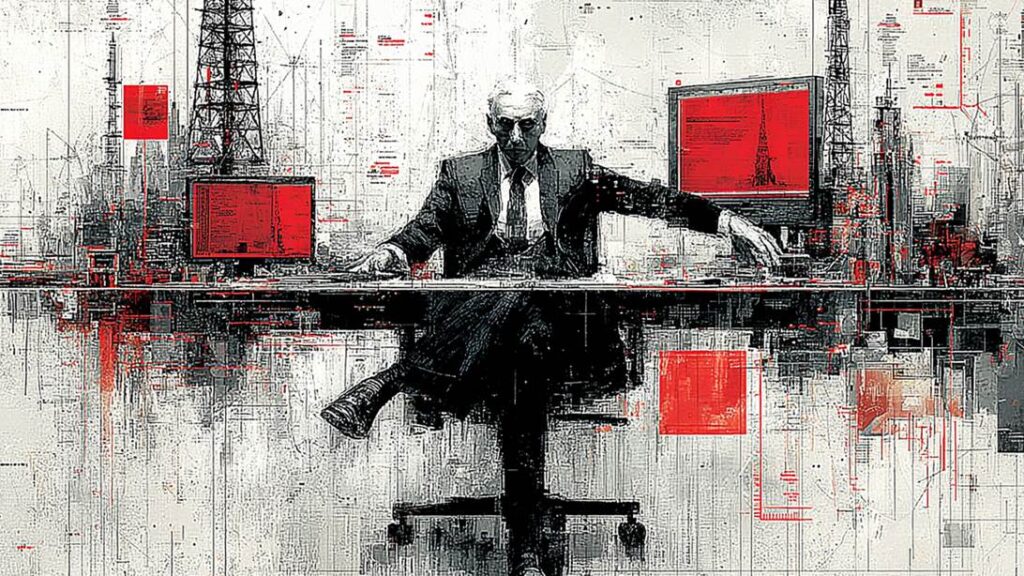
The Art of Being Legally Untouchable
The genius of Bulgaria’s corruption system lies not in its subtlety but in its brazen inversion of democratic institutions. In a country where anti-corruption bodies serve corruption and prosecutors protect the very criminals they should be investigating, the traditional mechanisms of accountability have been transformed into weapons against democracy itself. The case of former Prime Minister Kiril Petkov illustrates how even politicians who built their careers on anti-corruption platforms can find themselves ensnared by a system designed to eliminate threats to the established order.
Petkov’s downfall began in June 2025 when recordings surfaced featuring conversations between Sofia’s Deputy Mayor Nikola Barbutov and Lyulin district Mayor Georgi Todorov. The recordings allegedly revealed a scheme where district mayors were pressured by senior party members to rig public tenders, allowing money to be funneled back to the “We Continue the Change” party through donations. Within days, three people were arrested, including Barbutov and two company managers whose offices had been searched.
Petkov’s response to the scandal revealed the impossible position faced by genuine reformers in Bulgaria’s corrupted system. Despite founding his party on a platform of “zero tolerance for corruption,” Petkov was forced to resign as both MP and party co-chair, taking “political responsibility” for actions he claimed to know nothing about. His statement that being clean from corruption does not mean you are a good leader highlighted the cruel irony of Bulgaria’s political landscape, where integrity becomes a liability rather than an asset.
This institutional capture creates what analysts describe as a “system that resists change, despite outward signs of reforms and European integration”. The persistence of Bulgaria’s rule-of-law problems cannot be attributed solely to any single political party but reflects “systemic challenges that create opportunities for ambitious individuals to exploit the law for personal gain”. The result is a democracy in name only, where the forms of democratic governance mask the reality of oligarchic control.
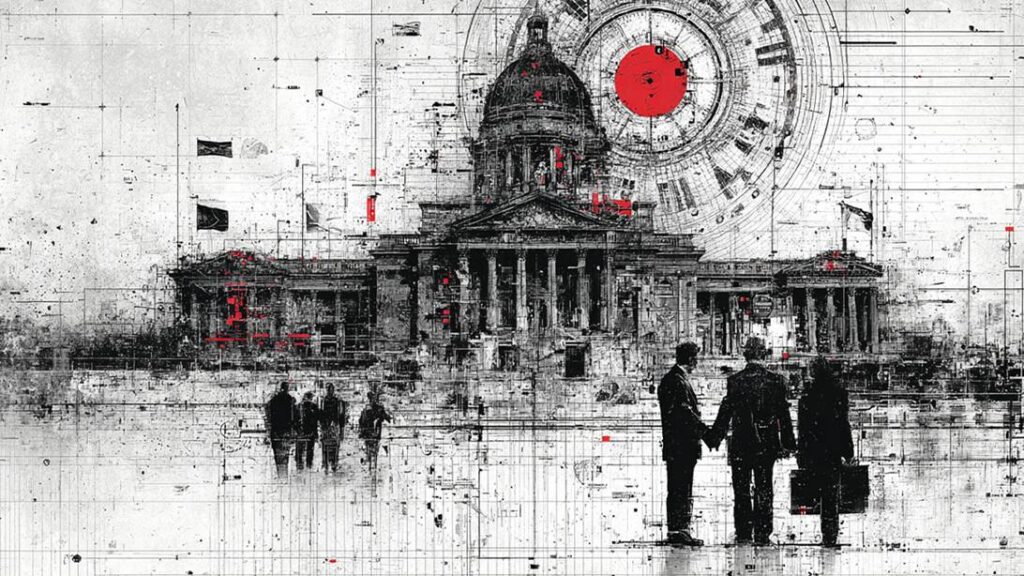
Brussels’ Blind Spot: Where Actions Go to Die
The European Union’s response to Bulgaria’s democratic decay reads like a masterclass in bureaucratic impotence. Despite overwhelming evidence of institutional capture, systematic corruption, and the complete breakdown of rule of law, the EU has largely limited itself to the issuance of reports, the expression of concerns, and the occasional fact-finding mission—all while continuing to shower Bulgaria with billions in funding and celebrating its integration into European institutions.
The European Commission’s 2025 Rule of Law Report represents the pinnacle of this approach, documenting in excruciating detail the “reversal in progress towards rule of law” while offering little beyond recommendations that Bulgarian authorities routinely ignore. The report notes that only 27% of European citizens and companies believe their courts and judges are truly independent, down from 43% in 2021, yet this dramatic decline has prompted no meaningful action from Brussels.
The Commission’s findings paint a picture of complete judicial capture: the prosecutor general retains “disproportionate authority,” attempts to limit this power have been “blocked or declared unconstitutional,” and these “institutional weaknesses undermine checks and balances and the rule of law more generally”. Yet rather than triggering Article 7 procedures or meaningful funding suspensions, these revelations have been met with the EU’s characteristic response of polite concern and gentle encouragement.
The disconnect between EU rhetoric and action becomes even more stark when examining the bloc’s response to international sanctions against Bulgarian oligarchs. While the United States and United Kingdom have imposed Magnitsky Act sanctions on Peevski for corruption and influence peddling, the EU has taken no similar action. This selective blindness extends to other sanctioned Bulgarian figures, creating a situation where EU member state citizens face sanctions from third countries while enjoying protection from their own supposed democratic union.
The EU’s funding mechanisms have become particularly perverse in this context. Through the Recovery and Sustainability Plan, Brussels continues to provide billions in funding to many EU members including Bulgaria while making cosmetic demands for anti-corruption reforms that are systematically undermined by the very people receiving the money. The selection of a new anti-corruption commission composition was made a condition for the second tranche of funding, yet this process has been captured by the same corrupt networks the commission is supposed to investigate.
As the European Council on Foreign Relations warns, “If Bulgaria’s decay is left unchecked, the country’s democratic backsliding could render its formal arrival at the heart of Europe a hollow achievement”. The integration of a captured state into core EU institutions—including the eurozone and eventually Schengen—creates precedents that other illiberal governments can exploit.
The case of Bulgaria demonstrates the fundamental weakness of the EU’s rule of law mechanisms when confronted with systematic institutional capture. The bloc’s tools—monitoring, reporting, and conditional funding—assume good faith actors who can be persuaded or pressured into compliance. They are wholly inadequate when dealing with sophisticated criminal networks that have captured the very institutions meant to ensure compliance.
The unfinished fight against corruption in Bulgaria is not merely a national tragedy but a European crisis. Until the EU develops the political will to confront systematic institutional capture with tools more sophisticated than strongly worded reports, Bulgaria will remain a cancer at the heart of European democracy—a reminder that the price of freedom is not just eternal vigilance, but the courage to act when vigilance alone proves insufficient.


